NEWS
Read about FEMALE ENTREPRENEUR latest activities and events.
Stay tuned and follow us on all our social media channels!
The Fifth Transnational Meeting in Brussels, Belgium
At the end of March 2023, all partners met in person for the fifth time in Brussels, Belgium, hosted by CBE, for a monitoring Transnational Meeting. One of the core discussions of the meeting was Online Course Addressed to Women: Aspiring or New Cultural Businesswomen. This IO consists the creation of teaching/learning materials addressed specifically to women – especially women from disadvantaged environments, who wish to establish and start their own business in the sectors of creative and cultural industries.

At the meeting partners also dedicated some sessions to the first three Intellectual Outputs. Second day of the meeting was intended to dissemination and quantitative impacts of the project. Finally, partners agreed on the next steps in order to successfully finish the project. It was a fruitful meeting!
Online Course Addressed to Women: Aspiring or New Cultural Businesswomen
As the FEMALE ENTREPRENEUR project is aimed at women from disadvantaged environments, who live in rural areas, with economic difficulties, unemployed in the long term and to those women who are interested in becoming businesswomen, through this Erasmus+ project a number of ways were designed to provide them an easier way to start their own business. The FEMALE project team has already developed three project results and those are the following:
- Interactive map of cultural and creative enterprises in Europe
- ICT tool for (cultural) business evaluation.
- Social Skill Self Evaluation Tool

Last, but not least, which is also the subject of this article is an Online course addressed to women: aspiring or new cultural businesswomen.
An online course will be created and carried out through a virtual environment of non-formal learning for women, which will let women take part of permanent learning according to their own rhythm. One of the MOST RELEVANT INNOVATIONS of this project result is the use of Open Badges as a non-formal tool / validation method that will be specifically designed to satisfy the needs of the target groups. Teaching materials will be available in 7 different languages: English, Spanish, Italian, Greek, French, Croatian and Bulgarian.
The FEMALE ENTREPRENEUR team expect that the IMPACT will be meaningful since the partnership expect that the online course:
- Increases the achievements of women in matter of business skills
- Improves their entrepreneurship competences and their social skills
- Increases their motivation, creativity and self-stem to start their own businesses
- Improves their careers to make their incorporation in the business market easier, especially in the creative and cultural sector.
- Increases their motivation and implication in permanent learning processes, building a large frame of their needs, achievements and abilities.
For more information follow us on : Facebook
4th Transnational Meeting in Zadar, Croatia
In September 2022, all partners met in person in Zadar, Croatia, hosted by AGRRA, for a monitoring Transnational Meeting. One of the core discussions of the meeting was the Social Skill Self Evaluation Tool, which will help women to identify their own social skills (as well as those missing), which they need to be a competent cultural businesswoman. At the meeting, partners also dedicated some sessions to make a deal on how to develop result number 4 – Online course addressed to women: aspiring or new cultural businesswomen. This result will consist in the creation of teaching / learning materials addressed specifically to women – especially women from disadvantaged environments - who wish to establish and start their own business in the sectors of creative and cultural industries.
Finally, partners agreed on the next steps to finalize the implementation of the third project result and established the work plan for the next months. Also, dates for the next Transnational Project Meeting were agreed.

The meeting was a success!
INVITATION TO EVALUATION OF SELF-ASSESSMENT FOR SOCIAL SKILLS

Social skills and competences, or also widely known as, soft skills, are key competences for the Entrepreneurial "universe", and not only. For that reason, an ICT self-assessment tool for diagnosis of social skills and competences for women entrepreneurs in the CCIs sector, has been developed. This tool provides assessment in seven (7) comptences' areas:
- “Adaptability”
- “Communication”
- “Resilience”
- “Leadership”
- “Emotional Intelligence”
- “Creative Thinking”
- “Intercultural Awareness”
The self-assessment process is realised through a range of statements to be chosen that lead to different assessment levels’ results for each competence area, and the description of the result, can be downloaded and printed.
This project’s result addresses women that already run or aspire to initiate their business in the CCIs sector, and they are invited to evaluate it, in order to actively and productively participate in its fine tuning. The evaluation can be done as follows:
- You will find the link to the ICT Self-Assessment Tool for social skills and competences here. The time for choosing from the Tool’s statements in each area is approx. 10 minutes.
- You will find the questionnaire for your evaluation here. The time for filling in the evaluation questionnaire is estimated to be less than 5 minutes.
The ICT self-assessment tool for diagnosis of social skills and competences has been developed within the implementation context of European project Erasmus+ KA2, Female Entrepreneur: Reimagine your Professional self through Culture, in English, Greek, French, Italian, Spanish, Croatian and Romanian, by the project’s partners (you can see them here), situated in Spain, Belgium, Croatia, Romania, Greece and Cyprus, respectively. The project aims at supporting, empowering and raising awareness, for women entrepreneurs or women attempting to enter the entrepreneurial world, that come mostly from vulnerable social contextes, to find all the concepts of creativity, innovation, democratisation and the digitisation of culture, in order to become creative for their own new business.
You are all more than welcome to visit the project’s news and project’s Facebook regularly for all latest info.!
Stereotypes as a barrier for female entrepreneurs
It is said that the gap between genders is getting smaller and smaller. Some European countries can serve here as an example since, as emphasized by MAPFRE, in Spain there are 9 women for every 10 men who decide to create their own business. Moreover, an organization called Mail Boxes Etc. Nederland, calculated that within the following 61 years in Western Europe both men and women will be granted with “equal presence in the business world”, (on condition that the same speed of change is maintained). But what about the rest of the world? Cherie Blair Foundation For Women points out that, according to estimations, 268 years are needed to fill the gap and ensure that, economically, men and women are equal.
MAPFRE organization points out three main barriers for female entrepreneurs that need to be still dealt with. The barriers are the following ones:
- Discrimination existent on a labour market, i.e., “glass ceiling”.
- Limited access to bank loans which stems from pay gap which leads to smaller amount of money which can be used as a capital.
- Harmful stereotyping.

Let’s start with what actually a stereotype denotes. Cambridge Dictionary defines a “stereotype” in the following way: “a set idea that people have about what someone or something is like, especially an idea that is wrong.” It is said that we use stereotypes to simplify the world around us, as it is impossible for the human mind to assess every individual alone. Thus, we come up with stereotypes such as: “Asians are good at math” and we apply it to every person belonging to such specific group.
Now let’s delve into the main stereotypes that women need to face when aiming to climb up the career ladder and occupy higher/entrepreneurial positions at their workplaces.
The main stereotype about women is the one concerning their character traits. According to such stereotypes women are sensitive, kind, caring, affectionate, and driven by emotions. That is why, it is thought by many that women are unsuitable for the business world, where the people need to be tough, aggressive, competitive, independent, and dominant, which is in accordance with the stereotypical “masculine” characteristics. Hence, women are perceived to be too weak for both top-level managerial and leadership positions. Therefore, they should perform jobs that fall into the category of “feminine” ones, for instance, they should preferably become teachers. Due to such stereotypes, as pointed out by Andie & Al, 75% of interviewees admitted thinking of men when hearing words that were related to business and career. Thus, at the same time they thought of women when listening to notions such as “household” and “family.” What is more, in the paper titled “Gender Stereotypes and Their Impact on Women’s Career Progressions from a Managerial Perspective,” Naznin Tabassum and Bhabani Shankar Nayak mention the perception that some people hold, i.e., women can be either “good” mothers or wives or managers, but they can never perform well these two roles simultaneously.
To sum up, such stereotypes need to evaporate once and for all, as they are not only hurtful but also, they obstruct the path for women to accomplish their goals. It should be enough to look at figures such as the Prime Minister of New Zealand, Jacinda Ardern, to notice that her compassionate leadership style is actually very much appreciated. What is more, she did not need to adopt to the stereotypical “masculine” approach by proving to be dominant or competitive in order to thrive while performing her job.
References:
“A Look at Gender Stereotyping: How Women in the Workplace are Today's Catalysts for Change,” accessed from: https://www.livinghr.com/post/a-look-at-gender-stereotyping-how-women-in-the-workplace-are-todays-catalysts-for-change
“Gender Stereotypes and the Biases They Foster Against Women in the Workplace,” Andie & Al, accessed from: https://andieandal.com/gender-stereotypes-biases-foster-women-workplace/
“Jacinda Ardern’s victory for compassionate competence,” Financial Times, accessed from: https://www.ft.com/content/04e59098-7dc5-4ec3-a543-7cb6f4eb6716
“Stereotype,” Cambridge Dictionary, accessed from: https://dictionary.cambridge.org/pl/dictionary/english-spanish/stereotype
“Stereotypes: Why we need them, why they are harmful, and how to overcome them,” SPEAK, accessed from: https://blog.speak.social/stereotypes/
Tabassum, Naznin and Bhabani Shankar Nayak, “Gender Stereotypes and Their Impact on Women’s Career Progressions from a Managerial Perspective,” accessed from: https://journals.sagepub.com/doi/full/10.1177/2277975220975513
“Women are becoming more and more entrepreneurial but still have barriers to knock down,” MAPFRE, accessed from: https://www.mapfre.com/en/insights/sustainability/women-entrepreneurial-barriers/
“Women's Entrepreneurship in Europe,” Mail boxes Etc. Nederland, accessed from: https://www.linkedin.com/pulse/womens-entrepreneurship-europe-mail-boxes-etc-nederland?trk=organization-update-content_share-article
Female Entrepreneur 3rd Transnational Meeting was held in Suceava, Romania
Transnational meetings are organized in order to allow all attendees to express themselves in a way that is not possible through virtual meetings such as body language and facial expression.
Accordingly on 28. - 29. of April 2022. the 3rd Transnational Meeting was held, as part of the project „Female Entrepreneur“. The meeting was a great opportunity to meet in person the associate members of partner organizations and to present all the achievements about previous and next project activities.
The two-day meeting began with a presentation led by the Lead Partner, Camara Commercio Italiana para Espana from Spain, and the success of the project implementation and project activities were discussed and commented on. The first day of the meeting was also dedicated to reporting, and elaboration of intellectual results and future activities, such as: the first next online meeting in June, and the fourth transnational meeting to be held in mid-September in Zadar. In the evening, representatives of all partner organizations were guests on local television, thus presenting the project to the public.
The second day of the meeting was dedicated to all the project partners, to express opinions on their achievements and contributions according to the project.
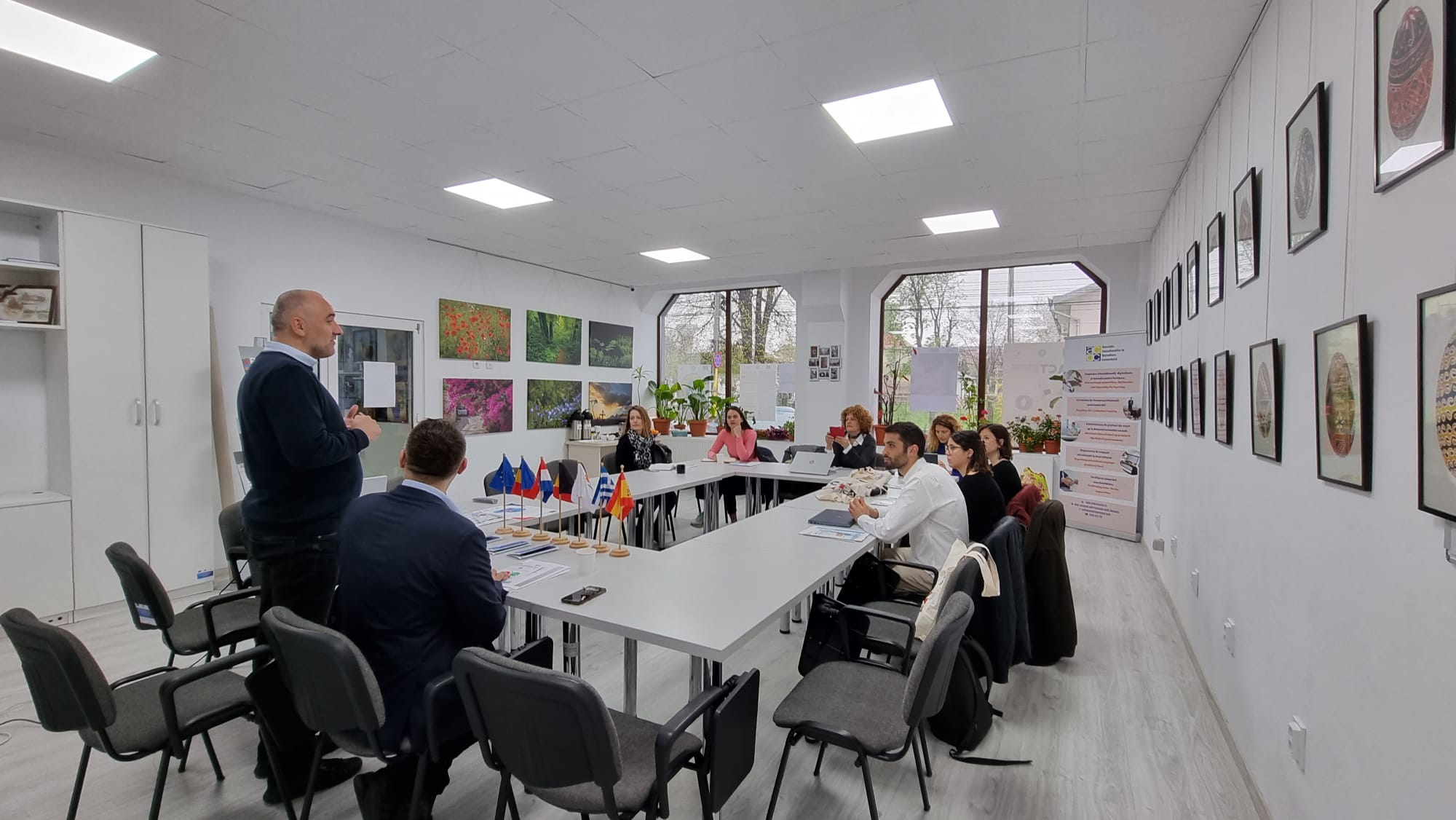
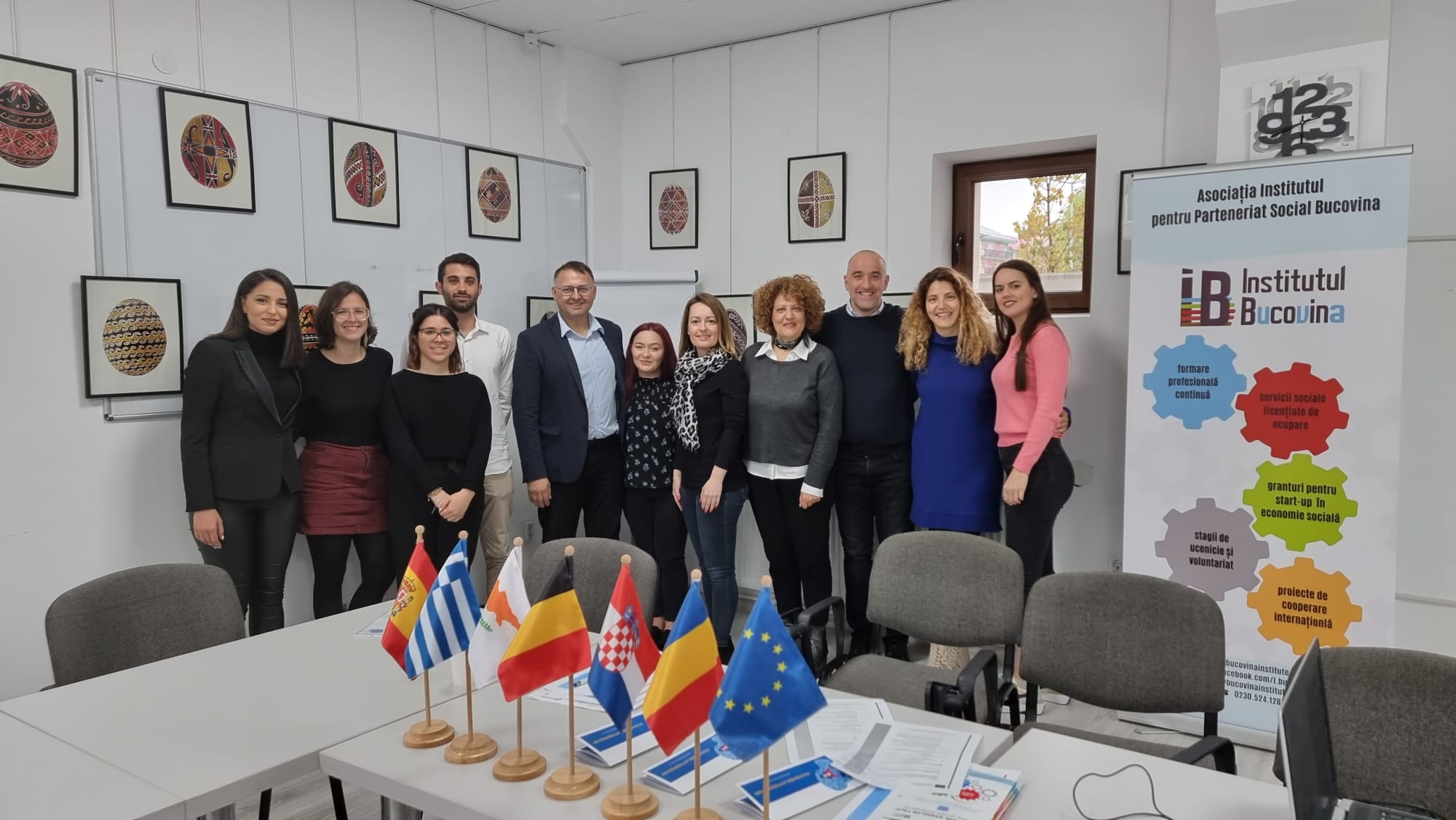
Find out more about the project and project activities on our Facebook page: https://www.facebook.com/FemaleEntrepreneurProject.
Female Entrepreneur Consortium developed the Social Skill Self-Evaluation Tool
In the last few months, the FEMALE ENTREPRENEUR project partnership spent time working on the development of the Social Skill Self-Evaluation Tool.

This tool has two initiatives:
- First, it will allow women entrepreneurs to diagnose and identify their own social skills (as well as those missing) which they need to be competent cultural businesswomen
- Second, this tool will be self-evaluation and a personalized approach of its structure and design.
Thanks to the easy and attractive virtual environment of the tool, anyone can access it from anywhere and make the evaluation process at their own path.
In the long term, the self-evaluation tool is expected to increase the sense of initiative and leadership in women, make them more involved in their own learning process in their lives and contribute to improving their digital and entrepreneurship skills, creating greater capacity to establish and manage a business in creative and cultural industries.
This tool is aimed at the target groups:
- Women from disadvantaged environments (who live in rural areas, with economic difficulties, long-term unemployed women) interested in becoming businesswomen
- Internal and external experts and professionals of partner organizations.
The Social Skill Self-Evaluation tool has already been tested by women entrepreneurs all over Europe.
Transnational Project’s Meeting In Patras
Meetings play a key role in how the Erasmus+ project partners schedule, organise and implement their work at hand. Transnational (in person) meetings are scheduled to help partners cooperate in the best way possible, to share ideas and strategies but most importantly to get all together in the same place and acquire the familiarisation needed to get the job done. The COVID-19 pandemic has a great effect on this key aspect because it has obliged us all to work remotely and has forced in person meetings to be held online which isn’t always the easiest way to work together especially when people meet for the first time.
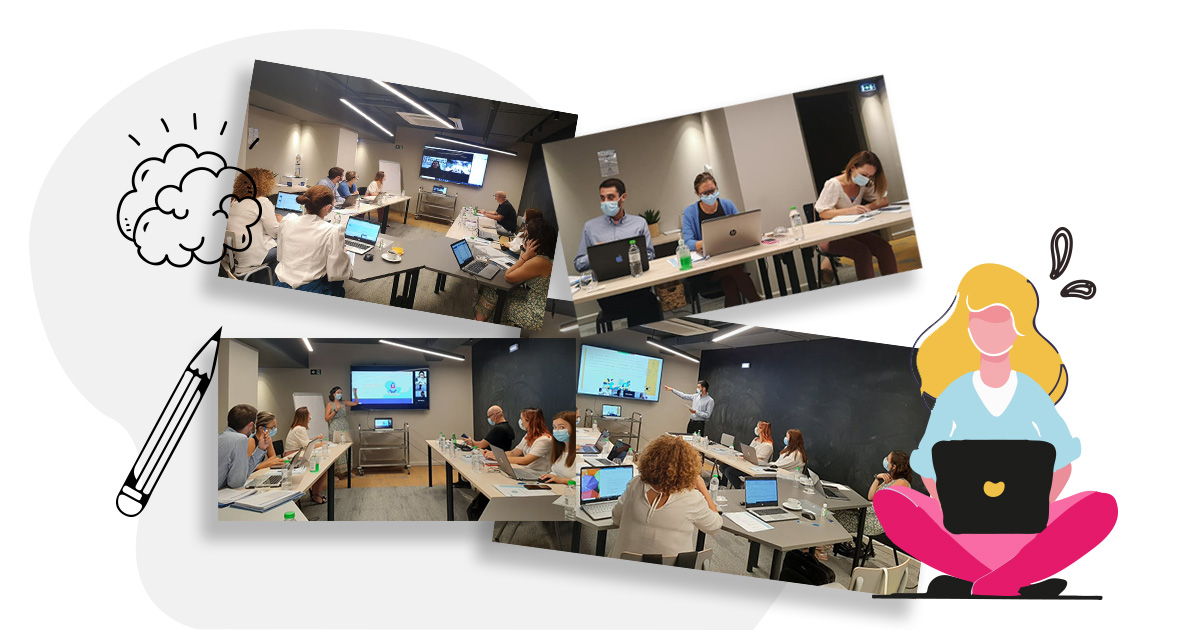
The short introduction that preceded was to emphasise how important these meetings are and how happy the Female Entrepreneur Project’s partners are to have finally met in person during the 2nd Transnational Project Meeting (blended) in Patras, Greece on the 9th – 10th September 2021. Representatives of most of the partners’ organisations attended the meeting and those that could not be physically present attended the meeting via online platform.
The 2nd Transnational Project Meeting of “Female Entrepreneur” was deemed by all participants as successful and fruitful! The project’s management was discussed in terms of what it has been accomplished so far and what is to be done further on. Ideas and strategies were shared abundantly on how the project can be more efficient towards empowering women entrepreneurs or aspiring entrepreneurs in the Cultural and Creative Industries Sector. New deadlines and tasks were set accordingly to that. We are all more than welcome to visit the project’s news regularly for all latest info.!
Female Entrepreneur Project’s Current Outputs in Sync with EU’s Cultural Work Plan
EU's cultural policy is based on the strategic framework delineated by the Commission and its Council, that „In the 2019-2022 Work Plan for Culture,...has selected gender equality as one of the five main priorities where there is a need for joint action. In order to raise awareness at political, administrative and practical levels within the cultural and creative sectors on the topic of gender equality, there is a need for comprehensive data and an exchange of good practices.“, as the EENCA report informs us all.
Female Entrepreneur: Reimagine your Professional-self through Culture" project addresses the gender equality issue and is set on all women, (but not exclusively, all are more than welcome to join) who want to start their businesses or professional careers within the Creative and Cultural Industries sectors, but have limited resources (for whatever reason).
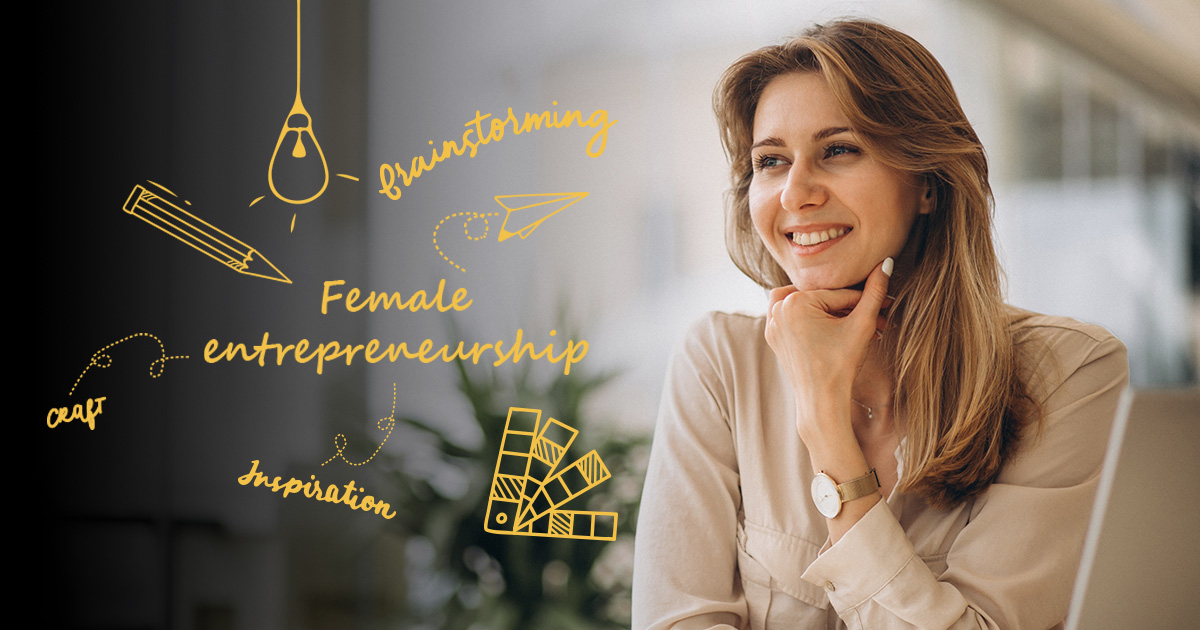
The project’s first Output, a Cultural Entrepreneurship Map of Europe, is in perfect synchronization with the EU’s culture and creativity policy and aspirations as to how to support the sectors’ professionals and artists. It contains case studies, good practices, inspirational examples and useful tools and platforms that one can just browse through or find useful information about possible market or networking opportunities or/and inspiration, in a creative entrepreneurial journey!
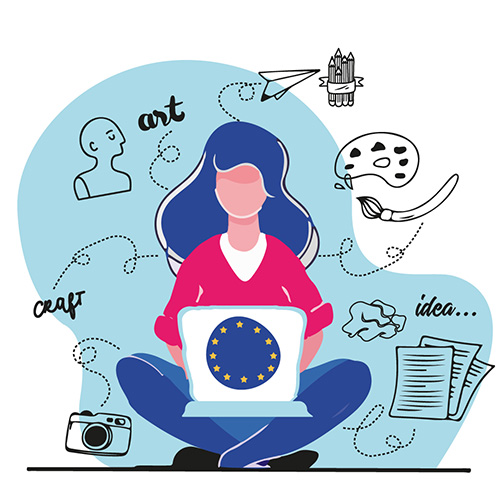
To further support women, the project's second soon-to be-available Output, is a self-assessement tool oriented towards presenting specific entrepreneurial competences regarding the CCSs, elaborated in the basis of the European Entrepreneurship Competence Framework. This ICT tool will provide an up-to-date list of the competences required in order to be well-equipped and thus successful in one's bussiness goals and going further and beyond, it will give the opportunity to all users, to assess their level of proficiency in each competence and further plan formation or enhancement!
In the future, the project will offer further outputs than those already reported, so those of you who are interested or curious or know people who might be interested and/or benefit from such news, you are kindly invited to visit the project's news, regularly.
Europe's Cultural & Creative Sectors and Female Entrepreuneurship
On May 26, 2021 the European Commission launched the Creative Europe 2021- 2027 programme which comprises the brand new actions to support Europe's cultural & creative industries sector with an unprecedented budget of approx. €300 million, 63% over the previous one, to be allocated to professionals and artists of all CC sectors in order to initiate collaborations beyond discilpines and borders and, by all means, to approach new audiences.
The programme's parallel goal is to boost the sectors' competitiveness and also awareness in becoming greener, more inclusive and more digital. It comes, on one hand, to comfort the devasting effect the COVID-19 pandemic has had, especially, on these industries and, on the other hand, due to their significance as economic wealth generators (they show above-average-growth and create jobs) and as strong social cohesion factors (they indicate a shared sense of European identity, culture and values).

An enlightening new report, published about 2 months ago, by the OMC Working Group of Member State's experts states that the CCS present a high level of entrepreuneurship and 44.3% of all women working in them are entrepreneurs (self-employed), which basically means that an improved business environment for female CC entrepreuneurs is key factor to their growth. Further enhancing that, a recent business news report adds to the narrative of female entrepreuneurship's importance in all sectors including the CC one, by commenting that „women-led businesses tend to be more productive, faster-growing and innovative. Empowering women’s participation in the labour market and encouraging entrepreneurship could thus add billions to the economy. According to the European Commission, improvements to gender equality could create 10.5 million jobs by 2050 and boost the EU economy by between 1.95 and 3.15 trillion euros”.

So what is the way forward? Far and beyond the overall structural challenges and empediments for CC entreprises, women entering the sector face situations similar to female entrepreuneurs in other economic environments, such as gender stereotypes and attitudes, balancing work and care work, lack of access to funding, resources and specific business skills. One such apparent approach forward is the one stimulating education, mentoring, and networking.
Women that have entered or aspire to enter the CC Enterprises and are looking for resources and new learning and professional paths can get involved and join a community that will empower them deviate from the established professional role models and help them excell. All parties interested may browse through the project's female entrepreneur website and find out all it can offer, going from self- assessment tools to an online course that will help improve those skills and competences identified that need improving!!